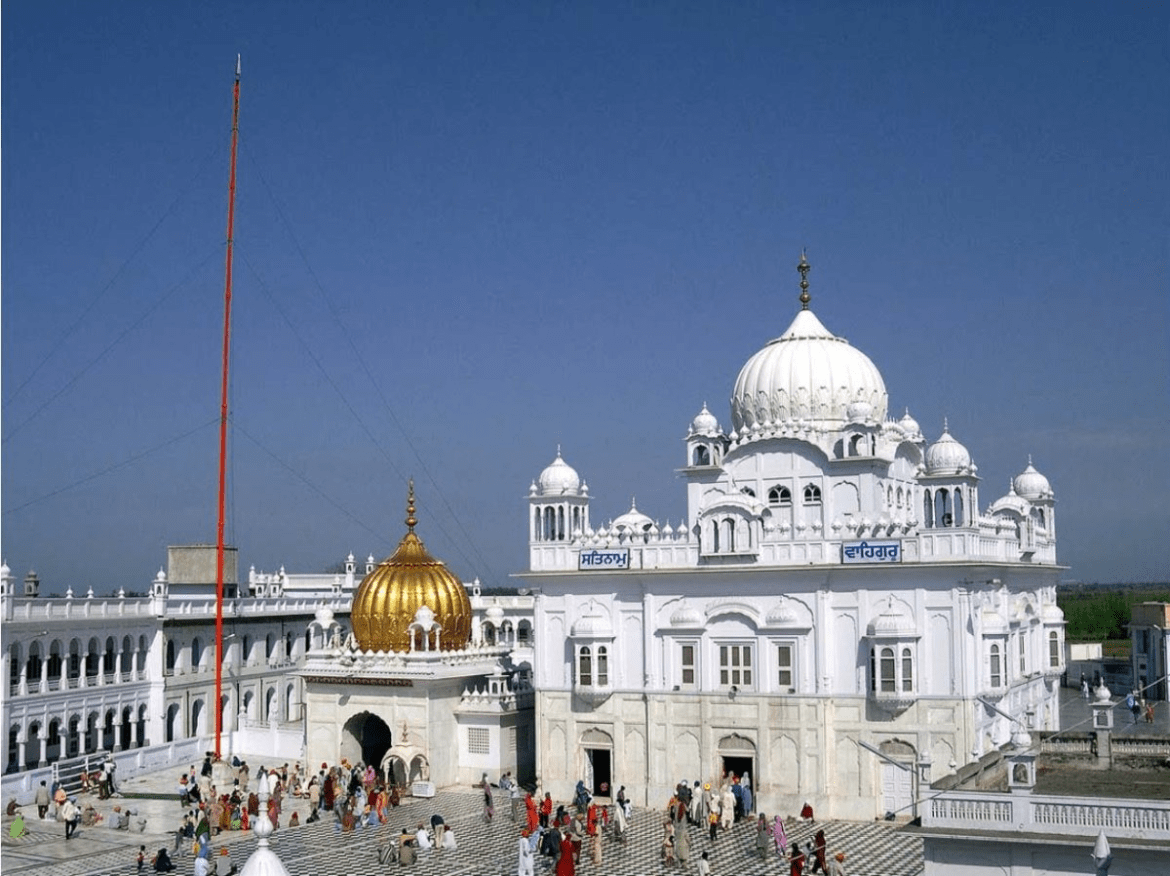AI Generated Summary
- It was here that Bhai Jetha Ji—later known as Guru Ram Das, the fourth Guru of the Sikhs—was bestowed the Tilak of Guruship by Baba Budha Ji in 1574, at the behest of Guru Amar Das.
- Founded in 1552 by Guru Amar Das, the third Sikh Guru, under the guidance of his predecessor Guru Angad Dev, Goindwal is not just a geographical landmark—it is a spiritual anchor for millions of devotees.
- Situated along the serene banks of the Beas River lies Goindwal Sahib, a town steeped in spiritual significance and revered in Sikh history as the “axis of Sikhism” or Sikhi Da Dhura.
Situated along the serene banks of the Beas River lies Goindwal Sahib, a town steeped in spiritual significance and revered in Sikh history as the “axis of Sikhism” or Sikhi Da Dhura. Founded in 1552 by Guru Amar Das, the third Sikh Guru, under the guidance of his predecessor Guru Angad Dev, Goindwal is not just a geographical landmark—it is a spiritual anchor for millions of devotees.
Goindwal holds a special place in the Sikh faith, not only as a historical settlement but also as the setting of pivotal moments in Sikh history. It was here that Bhai Jetha Ji—later known as Guru Ram Das, the fourth Guru of the Sikhs—was bestowed the Tilak of Guruship by Baba Budha Ji in 1574, at the behest of Guru Amar Das. The town also became the final resting place for revered figures such as Guru Amar Das, Guru Ram Das, and the eminent Sikh scholar Bhai Gurdas Ji.
The town derives its name from Goinda, a devout businessman and follower of the Sikh faith, whose family appealed to Guru Angad Dev for the town’s establishment. From its very inception, Goindwal Sahib embodied the values of equality and service—principles brought to life through the institution of langar, or community kitchen. In this tradition, people of all castes and backgrounds sat side by side to share a meal, sending a powerful message against caste discrimination.
A symbol of spiritual discipline and liberation, the Baoli Sahib—an 84-step well constructed by Guru Amar Das—continues to draw thousands of pilgrims. It is believed that bathing on each step of the Baoli can free the soul from the 84 lakh cycles of birth and death. This sacred structure remains a center of pilgrimage, particularly during the annual Mela Jagg, when devotees gather in large numbers to perform the holy baths.
History also records the visit of Emperor Akbar to Goindwal Sahib, where he humbly partook in langar before meeting Guru Amar Das. Moved by the Guru’s teachings, Akbar offered monetary aid, which Guru Amar Das respectfully declined. Instead, he urged the emperor to initiate social reforms, including the abolition of Sati—the practice of widow immolation—and to permit widow remarriage. These reforms marked a critical step toward gender equality in India.
Guru Amar Das’s legacy includes not just spiritual guidance, but also visionary leadership. During his 22-and-a-half-year tenure as Guru, he dispatched 22 preachers across the Indian subcontinent—then divided into 22 states—to spread the message of Sikhism and promote equality and compassion. His progressive stance against casteism and social injustice remains a cornerstone of Sikh philosophy.
Today, several historic gurdwaras preserve the memory of Guru Amar Das’s life and mission. Gurdwara Baoli Sahib, Gurdwara Khooh Sahib, and Gurdwara Chubara Sahib continue to be sites of deep reverence. Chubara Sahib was once the Guru’s personal residence, while Khooh Sahib served as a place for caring for animals, reflecting the all-encompassing compassion of the Gurus.
Despite its rich history and spiritual magnetism, Goindwal Sahib is not untouched by contemporary challenges. Concerns over the cleanliness of Baoli Sahib’s sacred waters have been rising, with waste from the surrounding town reportedly seeping into the well. Devotees and residents alike have expressed alarm at the lack of effective maintenance and environmental safeguards.
Adding to the worries is the ongoing issue of drug abuse. While local authorities have made assurances to combat the problem, residents claim that areas like Nimm Wali Ghati continue to be hubs of illicit drug activity. Multiple efforts to reach the local MLA, Manjinder Singh Lalpura, for comment have gone unanswered, raising questions about the political will to address the town’s pressing issues.
In the face of these challenges, the spiritual beacon of Goindwal Sahib remains lit. Bhai Gurmukh Singh, the Head Granthi of Gurdwara Baoli Sahib since 2021, tirelessly upholds the legacy of the Gurus, offering spiritual guidance to the many who come in search of peace, reflection, and renewal.
Goindwal Sahib stands as a powerful reminder of Sikhism’s foundations in equality, service, and reform. As the town navigates the complexities of modern life, its history calls for renewed efforts—both spiritual and civic—to preserve its sanctity for generations to come.




